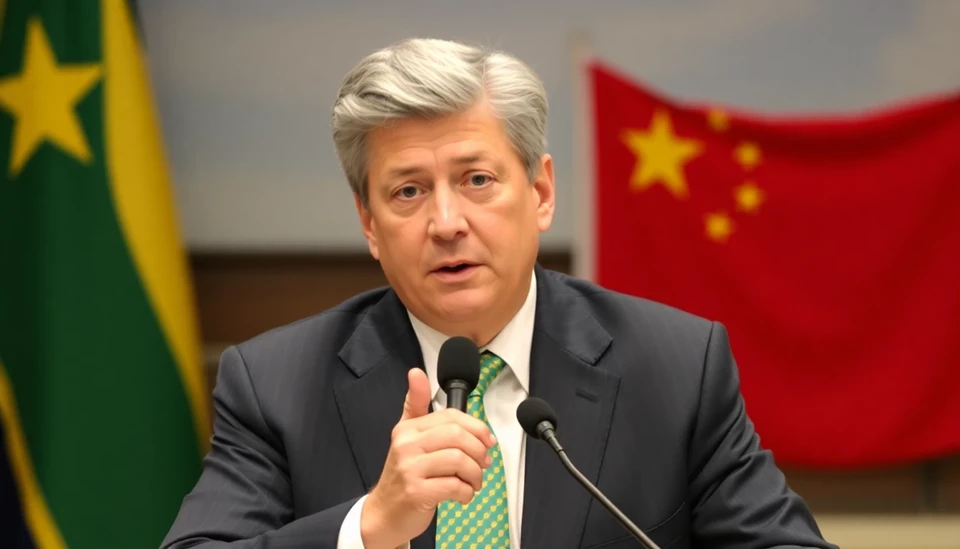
The Canadian province of Saskatchewan has taken a proactive stance in urging Mark Carney, the Governor of the Bank of England and former Governor of the Bank of Canada, to intervene in the growing concerns regarding Chinese tariffs that are threatening the provincial economy. With China's recent imposition of tariffs on canola, a staple crop for Saskatchewan, local officials are increasingly worried about the impact on farmers and the broader agricultural sector.
In a letter addressed to Carney, Saskatchewan's Premier Scott Moe emphasized the need for immediate action and dialogue to mitigate the adverse effects of these tariffs. The Premier outlined the province's reliance on canola exports to China, which have historically represented a significant source of revenue and economic stability for local farmers.
As trade tensions between Canada and China escalate, the Premier cautioned that the continued imposition of tariffs could lead to decreased market access and diminished competitiveness for Saskatchewan farmers on the international stage. The letter calls for Carney to leverage his international influence to advocate for fair trade practices and to seek resolution with Chinese officials.
This urgent appeal comes against the backdrop of increasing global trade uncertainties, with many agricultural sectors feeling the pressure from fluctuating international markets. Saskatchewan’s economy is highly reliant on agriculture, and canola is one of the leading crops produced in the province, contributing significantly to local employment and export figures.
The Premier’s communication with Carney is not just about immediate response but also about broader trade strategies that can shield Saskatchewan’s economy from similar threats in the future. The province sees Carney's expertise and connections as vital in navigating the complex trade landscape and fostering stronger economic ties.
Local farmers have expressed growing concerns about the sustainability of their operations amid potential long-term impacts from the tariffs. Many have reached out to the provincial government for support, highlighting that the agricultural community is in a state of uncertainty. The provincial government is working closely with agriculture stakeholders to assess the situation and provide assistance where needed.
The situation has prompted calls for greater diversification in markets and products to reduce reliance on any single export destination. Saskatchewan is exploring opportunities in other regions, and there is a push for government funding to support initiatives that enhance export capabilities to other countries.
As Saskatchewan waits for a response from Carney, the urgency of the situation continues to mount. Local officials emphasize that swift action is essential to safeguard the interests of farmers and ensure the economic viability of the province’s agriculture sector in the long term.
In conclusion, Saskatchewan’s appeal to Mark Carney highlights a critical moment for the province, one that requires strategic diplomacy and robust advocacy to tackle the challenges posed by international trade disputes, particularly with a major player like China.
#Saskatchewan #Tariffs #China #Trade #Canola #MarkCarney #Agriculture #Economy #CanadianFarmers #Exports
Author: Laura Mitchell




